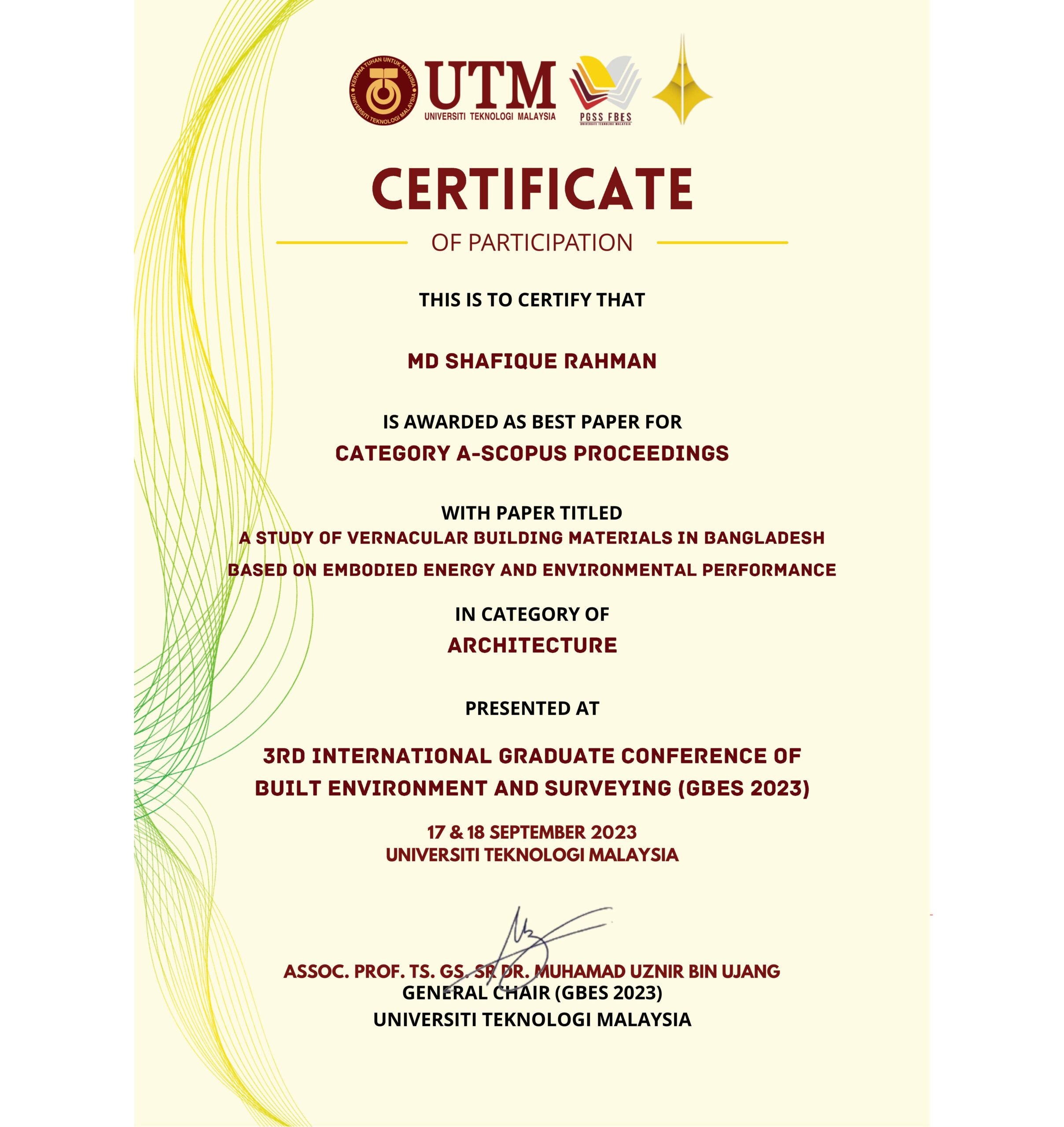
One of the research papers titled “A Study of Vernacular Building Materials in Bangladesh,” authored by Architect Shafique Rahman, Professor Lim Yaik Wah & Nabilah Nargis, was presented at the 3rd International Graduate Conference of Built Environment and Surveying (GBES 2023) and awarded as “The Best Paper.”
Abstract: Concerns over climate change have driven the need for decarbonization of the building sector worldwide. It is proven that manufacturing building materials consumes a substantial amount of non-renewable energy and releases carbon emissions. For this reason, it has become essential to find clean and energy-efficient alternative building materials. In Bangladesh, vernacular houses in rural areas are made of locally found materials like mud, bamboo, thatch, wood, and others and are always used in the construction of houses without any industrial processing; these dwellings are composed of materials with very little or no embodied energy (E.E). However, there has been a significant change in the construction of houses and the use of materials in rural Bangladesh in the last two decades. Concrete, brick, metal sheets, and many other industrial materials have taken possession of indigenous technology and bio-based materials. As a result, environmentally sustainable traditional houses have been transformed into energy-intensive houses. This research aims to study vernacular building materials in Bangladesh to identify their embodied energy, climatic performance, thermal conductivity, and durability for constructing low-carbon and less energy-consumed buildings. Based on several case studies, field surveys, and literature reviews, the assessment has been conducted, showing that these materials are highly efficient in embodied energy and can also ensure great thermal comfort. This study also evaluates the durability of these materials and depicts that by enhancing their durability, these materials can act as the best-performing building materials in all aspects.